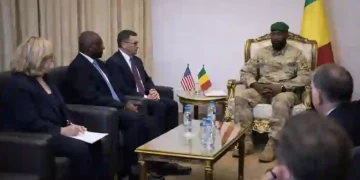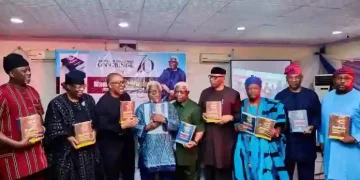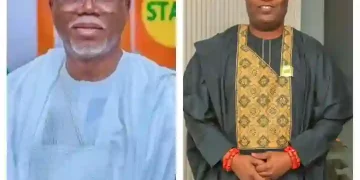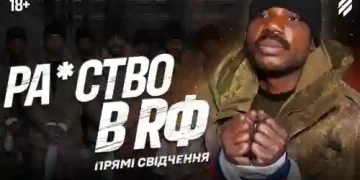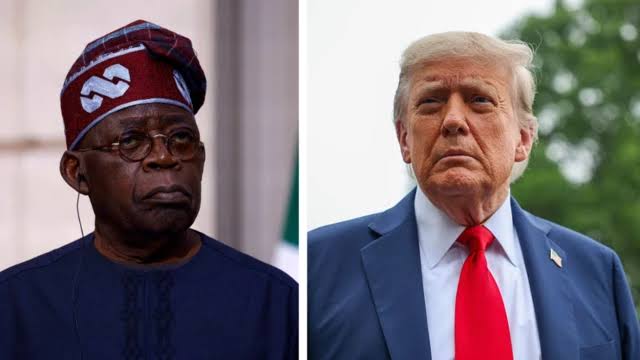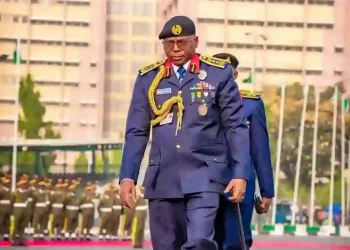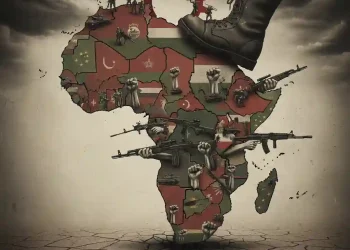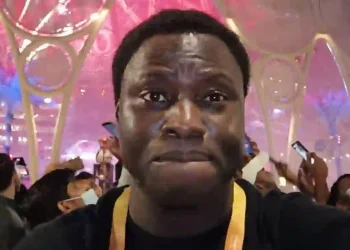Nigeria is a country perpetually trapped in the glare of fire, a place defined by blood, broken churches, and smoky northern skies. Each time violence erupts in the North East, headlines from Washington, London, or Paris rush to declare a new season of Christian persecution or jihadist terror. The lens is narrow, the narrative familiar, and the human story reduced to the binaries that comfort foreign audiences: victims and villains, Christians and Muslims, light and darkness.
But this version of Nigeria, the one stitched together by selective outrage, is not the whole truth. It is, at best, a fragment of a larger picture, and at worst, a convenient distortion.
Yes, there is killing. Yes, there is religious intolerance. But the deeper tragedy of Nigeria is not only in who kills whom, but in the hollow governance, social fractures, and unhealed economic wounds that make such killings possible in the first place.
To understand Nigeria, one must look beyond the pulpit and the mosque, into the soil, the hunger, the silence of jobless youths, and the fatigue of a country that has learned to mourn without justice.
Foreign media, particularly Western outlets, have long portrayed Nigeria through a single window: the religious lens. To them, every mass killing is the work of radical Islamists, every farmer-herder conflict a holy war, and every displaced family a symbol of Christian suffering. The images are heartbreaking: charred homes, women weeping over mass graves, churches razed at dawn, but they often arrive stripped of context.
What is rarely shown is how those same conflicts bleed into ethnic identity, resource control, land degradation, and state failure. The bandit attack that wipes out a Christian village in Kaduna often began as a land dispute worsened by desertification and the collapse of grazing routes. The assault blamed on “Islamists” in Plateau may also involve criminal gangs trading in cattle rustling and kidnapping. Violence here does not obey the neat borders of faith.
Yet, in Western newsrooms, complexity does not sell. Simplicity does. A headline that says “Islamists slaughter Christians” fits neatly into a worldview familiar since 9/11, one that reinforces existing fears and moral hierarchies. It tells readers who to pity and who to blame. It absolves them from having to understand how governance decay, corruption, and environmental collapse can make faith the mask of something more desperate.
Trump’s Revival of a Dangerous Frame
When Donald Trump recently declared Nigeria a “Country of Particular Concern” and accused “radical Islamists” of killing “thousands of Christians,” he did not invent the narrative, he merely amplified it. His language echoed years of evangelical and conservative media framing that treats Nigerian violence as proof of a global Christian persecution crisis.
Trump’s statement, while politically effective for his domestic audience, flattened a multidimensional tragedy into a single storyline. It ignored that Muslims have also been victims of the same insurgencies, that communities across Zamfara, Katsina, and Sokoto bleed regardless of creed, and that many attackers themselves act from poverty, not piety.
This oversimplification does more harm than help. By framing Nigeria’s insecurity as a purely religious genocide, the international community risks misdiagnosing the disease. You cannot cure poverty with prayer diplomacy. You cannot end banditry with missionary outrage.
The real threat is not a war between Christians and Muslims, it is a war between ordinary Nigerians and the conditions that make violence profitable.
What the Cameras Miss
To step away from the Western lens is to see another Nigeria, quieter but equally wounded. In Makurdi, a farmer counts the days before his next harvest, unsure if the rains will come or if armed herders will destroy what is left of his land. In Zamfara, a mother nurses her child under the shadow of gunfire, knowing that the nearest hospital has no doctor. In the South East, a teacher waits six months for salary arrears while militants set up illegal checkpoints that choke local trade. None of these stories make the evening news.
The world’s fascination with faith based violence overlooks the slower, invisible erosion: failing schools, unpaid pensions, the steady collapse of trust between people and state. Everywhere, the same question echoes, what is the value of life in a country where government appears absent?
This absence, not religion, is the true author of our tragedy. Where there is no justice system that punishes killers, vengeance becomes culture. Where there is no functioning economy, crime becomes profession. And where the state is deaf, people begin to pray louder, not because they are more spiritual, but because prayer is the last affordable form of protest.
How the Foreign Lens Shapes Policy
The danger of a single narrative is not just perception; it becomes policy. When Nigeria is portrayed as a hotbed of religious persecution, foreign governments respond through that prism. Aid money is earmarked for “faith protection,” not for rebuilding broken justice systems. International NGOs arrive with interfaith dialogue programs, while communities cry for roads, irrigation, and jobs. The outcome? The world funds symptoms, not solutions.
This skewed focus also influences diplomacy. Western politicians score moral points by “standing with persecuted Christians,” while sidestepping the real questions: why are weapons so easily available? Who finances the militias? Why are rural police stations underfunded? Why does Nigeria, Africa’s biggest economy, still spend more on political office allowances than on social security?
In this way, the international gaze, even when well meaning, can become part of the problem. It rewards the spectacle of suffering but neglects the machinery that creates it.
Nigeria’s Story Is Bigger Than Its Scars
It is time the world sees Nigeria as more than a land of conflict. There is a complexity to this country that resists lazy storytelling. Beneath the tension lies a population that still believes in rebuilding, young innovators turning waste into wealth, musicians exporting hope, women leading peace dialogues in communities where men once ruled by fear. These are also Nigerian stories.
When we flatten a nation’s identity into its wounds, we rob its people of dignity. We tell the world they exist only in crisis, never in creativity. And we make it easier for the powerful, both local and foreign, to speak about Nigeria rather than to Nigerians.
The Way Forward: Telling Our Own Story
If the world keeps defining Nigeria by its blood, then Nigeria must redefine itself by its breath. That begins with owning the narrative, with local media investing in long form investigations that reveal not only who died, but why. With documentaries that trace the path from bad governance to radicalization. With Nigerian journalists, writers, and filmmakers refusing to let outsiders be the sole curators of our pain.
Foreign correspondents have the right to report; but Nigerians have the duty to explain. Our journalists must resist being sources for simplified pity pieces and instead produce work that forces nuance into the global conversation. The same violence that kills in Borno also bleeds through unemployment in Lagos, piracy in Bayelsa, drug migration in Edo, and police extortion in Abuja. It is one body with many wounds.
To see it wholly is to begin healing.
Seeing Nigeria in Full
The Story of Nigeria cannot be reduced to religion without losing its soul. Our tragedy is not simply that Christians die or that Muslims kill, it is that poverty, corruption, and misgovernance have turned every identity into a weapon. The world’s narrow lens comforts foreign guilt but complicates Nigerian recovery.
If the foreign media truly wish to help, they must learn to listen, not just to the screams from burned villages, but to the silence between them: the silence of broken systems, forgotten promises, and citizens who still hope that justice is not a foreign word.
Nigeria is not a battlefield between Christianity and Islam. It is a battlefield between truth and misrepresentation, between apathy and accountability, between the easy headline and the hard work of understanding.
And until the world looks at us in full, not through a filter of faith or fear, we will remain both misread and misunderstood.

